Los Tarantos (1963)
Gênero : Romance, Drama, Música
Runtime : 1H 23M
Director : Francisco Rovira Beleta
Sinopse
Gypsy Romeo and Juliet: A boy and a girl from rival families fall in love.

Era uma vez uma comunidade de exuberantes ciganos. Dois avós que julgavam estarem mortos, dois jovens apaixonados, uma senhora que queria vender a filha, um rapaz gorducho, um comboio roubado e desaparecido, um burro, um porco, dois gatos e uma fanfarra suspensa na árvore.
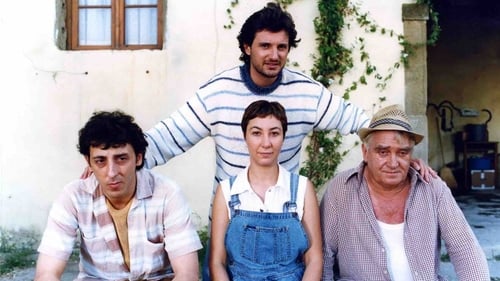
The everyday life of accountant Levante, his family and the other people of a small town in the Tuscan countryside is taken by storm by the serendipitous arrival of five beautiful flamenco dancers from Spain.
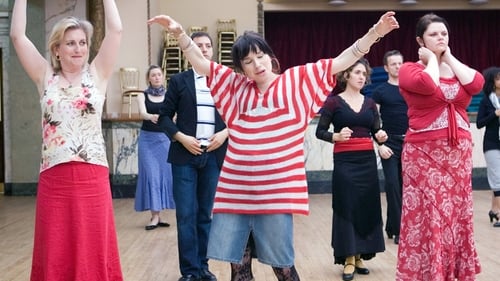
Poppy (Sally Hawkins) é uma jovem professora de escola primária, e uma otimista incorrigível que dificilmente se chateia. Divide um apartamento com Zoe (Alexis Zegerman) sua melhor amiga e confidente. Poppy tem o dom de aproveitar ao máximo a vida. Determinada a aprender a dirigir, ela encontra-se com Scott (Eddie Marsan), um instrutor ansioso e perturbado, que testará todo o bom humor de Poppy.
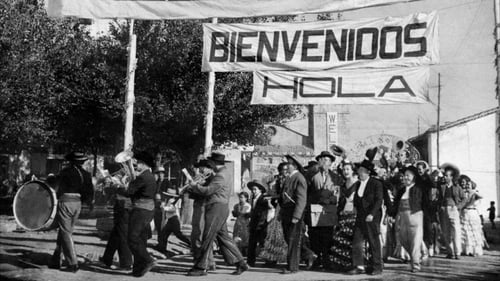
A small Spanish town, Villar del Río, is alerted to the upcoming visit of American diplomats and its ruling townsmen begin preparations to impress the American visitors, in the hopes of benefiting under the Marshall Plan. Hoping to demonstrate the side of Spanish culture with which the visiting foreign officials would be more familiarized, the Castilian citizens don unfamiliar Andalusian costumes, hire a renowned flamenco performer, and re-decorate their town in Andalusian style, meantime waiting for their uncertain arrival.
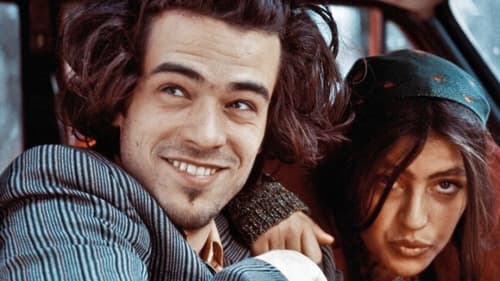
Um músico francês, Stéphane, anda pela Roménia em busca de uma cantora cigana, que apenas conhece pela voz, graças a umas cassetes que o seu pai ouvia obsessivamente antes de morrer. Chega a uma aldeia cigana e tenta falar com um velho, apesar de não falar a língua e de não ser entendido na sua. O velho acaba por o hospedar em sua casa e Stéphane mergulha no universo cigano que desconhecia em absoluto. A aldeia adota-o e Stéphane conhece Sabina, uma cigana que viveu na Bélgica e que começa a desconfiar do "estrangeiro louco".
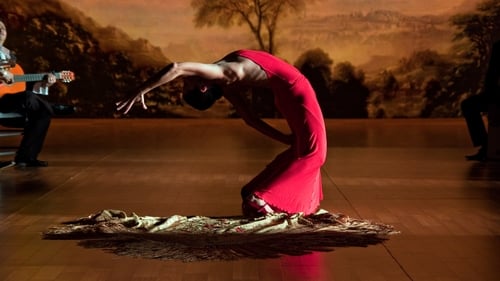
Flamenco, Flamenco puede considerarse el máximo exponente de la particular y personalísima forma de realizar cine musical de Carlos Saura, y sin duda, permitirá a los espectadores de todo el mundo disfrutar de nuestro cine y nuestro arte a través de música, baile, y cante de incomparable belleza.
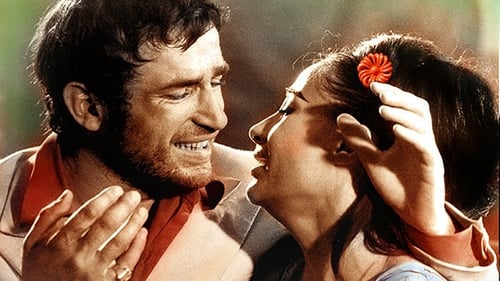
O protagonista Bora é um cigano encantador mas malandro, enquanto que sua esposa mais velha, Lence, é submissa. Bora está apaixonada pela jovem Tisa, que é oferecida em casamento por seu pai. Os dois se sentem sem saída. Então Tisa rejeita seu marido e ela e Bora fogem e conseguem um monge nas montanhas para realizar o casamento. Incapaz de retornar ao acampamento dos ciganos, Tissa tenta chegar a Belgrad por conta própria, mas alguns viajantes num caminhão a violentam, e ela retorna para a miséria à sua tribo. Enquanto isso, Bora defende sua honra da maneira tradicional, com uma facada, e mata seu oponente. Portanto, ele também deve deixar a tribo. E, no entanto, veremos felizes ciganos...

Gypsy Romeo and Juliet: A boy and a girl from rival families fall in love.

Caco is a proud, handsome man, head of a family, and very powerful in the local community. Yet he has been torn to pieces by the death of his beloved daughter. He constantly visits her grave, weeps silently at her photo and has transferred all his wildly protective love and attention onto his mentally challenged nephew, Diego. It seems that Diego's father, Caco's brother, is in hiding after having killed a man from the Caravaca family, who are equally powerful in the community. They are looking for vengeance and have come to Caco for justice. When he refuses to betray his brother, the Caravacas grow impatient. When they realize they are getting nowhere, they threaten to kill Diego. Despite his fierce pride, Caco eventually realizes that the cycle of killing and revenge must be broken. But how can he achieve this and protect everyone he loves?
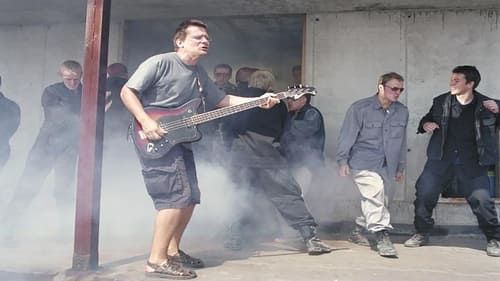
Waiters’ competition at Heroes’ Square in the late thirties. Dressed as waiters, Kapa and Pepe awake in the bronze chariot of the millennial sculpture group. They drive along the Danube promenade, and on the concrete reinforcement of the demolished Budapest rondella hotel they get involved in a showdown of political background. In the burnt-down Sports Hall the waiters train for a last supper, Pepe and Kapa run around the big laid table with trays in their hands. While doing so, Pepe keeps crying out: "I am the best one, I am the most beautiful one, I am the king, I am the god..." Sitting in a boat on the Danube, a ship goes past them, and the Niagara falls, majestic and breathtaking, resound in their ears. On each passing away something new will come to life – as rapped by Sub Bass Monster.

The documentary is a summary of Paco de Lucía's career, his art, his human category and his life, from his first artistic steps to his last professional steps, which have been marked by flamenco. Numerous testimonies and interviews carried out between 2010 and 2014 are exposed.

The film presents thirteen rhythms of flamenco, each with song, guitar, and dance: the up-tempo bularías, a brooding farruca, an anguished martinete, and a satiric fandango de huelva. There are tangos, a taranta, alegrías, siguiriyas, soleás, a guajira of patrician women, a petenera about a sentence to death, villancicos, and a final rumba.

Miguel is in love with Rosa, a special woman. The relationship did not work at all and decide to break. Rosa then falls for a Sevillian painter who has returned after forty years of exile.

The movement of a bullfighter's body died in America originates a massive concentration of people in an Andalusian people. Owed to the influence of so many persons, all the houses are enabled, even the brothel.
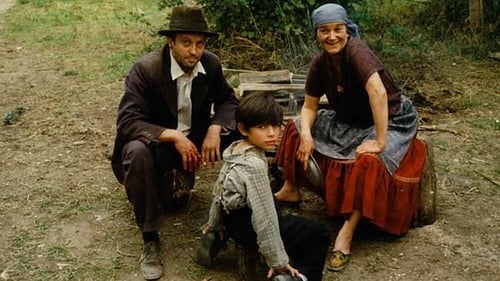
A tragedy looms for a young Gypsy violinist whose half brother is in the throes of first love.

The story unfolds in Bilbao. Rocío (Emma Suárez), is in love with Mario (Antonio Banderas), a free rider with a lot of face that, to top it all, is partner of the business of her father, Domingo (Francisco Rabal) with whom she maintains incestuous relations. When Domingo passes away, both Mario and Rocío's mother have to put to the front of the business, finishing with the inheritance that could receive Rocío. In the midst of her frustration, a young business worker, secretly in love with Rocío, will try to have the legacy of her father end up in the hands of his rightful heiress.

In his time of greatest splendor, the singer Miguel 'Bambino' Vargas Jiménez (1940-99) was the last frontier of flamenco, an immense musical genre that he developed and brought closer to large audiences: an artist of artists, the idol of the roadside bars, whose inimitable style, scenic magnetism and heartbreaking personality made of his figure a myth, a king without a kingdom, a giant of the popular music of the 20th century.
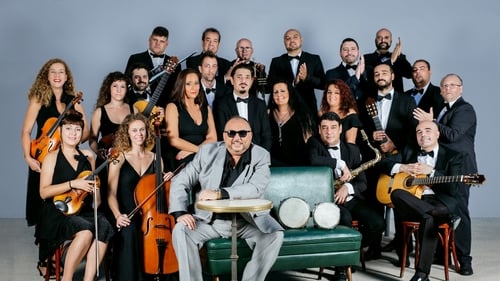
Joan Ximénez el Petitet is a Catalan gypsy who pursues a dream. A former musician now —a percussionist, son of Ramón el Huesos who worked with the mythical singer Peret—, and affected by a rare chronic disease, he wants to accomplish the promise he made to his mother before she died: to celebrate a rumba concert on the stage of the Liceu, a great theater in Barcelona, along with a big symphony orchestra.

RROMANI SOUL traces the true origin of the Rroma people. Through rituals, song and dance we follow emblematic figure and "Queen of the Gypsies" Esma Redzepova to Macedonia, south of France and finally to India. The film reveals for the first time ever that the true and unique origin of the Rroma is Kannauj in Uttar Pradesh, India.

A famous painter returns to Spain under a false name as he once had to run away, to meet his half gypsy daughter, who has become a flamenco dancer. He offers her his house, making popular rumors take flight.
















